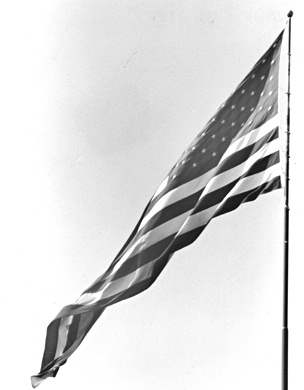All Nonfiction
- Bullying
- Books
- Academic
- Author Interviews
- Celebrity interviews
- College Articles
- College Essays
- Educator of the Year
- Heroes
- Interviews
- Memoir
- Personal Experience
- Sports
- Travel & Culture
All Opinions
- Bullying
- Current Events / Politics
- Discrimination
- Drugs / Alcohol / Smoking
- Entertainment / Celebrities
- Environment
- Love / Relationships
- Movies / Music / TV
- Pop Culture / Trends
- School / College
- Social Issues / Civics
- Spirituality / Religion
- Sports / Hobbies
All Hot Topics
- Bullying
- Community Service
- Environment
- Health
- Letters to the Editor
- Pride & Prejudice
- What Matters
- Back
Summer Guide
- Program Links
- Program Reviews
- Back
College Guide
- College Links
- College Reviews
- College Essays
- College Articles
- Back
A Constitutional View: On Separation of Church and State
The phrase "Separation of Church and State" has been thrown around in schools, courts, and the government for the past decade or so. But where did it come from, and why does it hold so much sway? As Americans we pride ourselves in not just believing everything our government tells us, but in this area, we have sorely fallen short of our reputation. For where is separation of church and state in the Constitution?
For the past several years, I have been studying the Constitution and the Amendments, and I can tell you that separation of church and state is not in the Constitution. In fact, upon further study, I found the origin of "separation of church and state" to come from a letter that Thomas Jefferson wrote to a Baptist church ensuring that the government would not interfere in the church, not the other way around. These Baptist were worried that the government would interfere with their worship of the Christian God, so Thomas Jefferson wrote them the following promising that the 1st Amendment would guarantee that they could worship God without fear of the government:
“Believing with you that religion is a matter … that he (man) owes account to none other for his faith or his worship…I contemplate with sovereign reverence that act of the whole American people which declared that their legislature should "make no law respecting an establishment of religion, or prohibiting the free exercise thereof," thus building a wall of separation between Church & State.”
As you can see the text speaks to the point that the government should not interfere with the church, not the other way around. However, why would we debate this? A simple letter has no power in our country’s governing.
Yet, simply proving that the Constitution and our founding fathers have nothing to say about separating church from the state does not mean that they approved of it. The first amendment speaks to religious freedom, but not to if the government had to be without religion as many believe today. So to conclude if the founding father’s approved of religion in the government, we must look at their actions and their own words.
When the Constitutional Convention started, they signers had invited various Priests, Baptists, and other Christian preachers to come and lead several round of prayers to God before the government meeting even started. In that instance, religion was certainly part of the state. Furthermore, in the Declaration of Independence, there are many parts which speak of God, “We hold these truths to be self-evident… that they are endowed by their Creator with certain unalienable Rights…”, “appealing to the Supreme Judge of the world…” and “with a firm reliance on the protection of divine Providence.” Obviously, by their actions, the founders believe in a state which was inseparable from the church, and a church which was separate from the state.
Furthermore, the founders of our nation had numerous quotes referring to the church being part of the government of which I have included only a few:
- John Adams: "Without religion, this world would be something not fit to be mentioned in polite company: I mean hell."
-George Washington “"It is the duty of all nations to acknowledge the providence of Almighty God, to obey His will, to be grateful for His benefits, and humbly to implore His protection and favor."
- Noah Webster "[O]ur citizens should early understand that the genuine source of correct republican principles is the Bible, particularly the New Testament, or the Christian religion."
- Congress 1854 "The great, vital, and conservative element in our system is the belief of our people in the pure doctrines and the divine truths of the Gospel of Jesus Christ."
"In this age, there can be no substitute for Christianity... That was the religion of the founders of the republic and they expected it to remain the religion of their descendants."
According to the founders, the United State of America is a Christian nation, but to not get them wrong—a fundamental of the Christian religion is that man is free to choose to practice whatever religion he wants even if it is not Christianity because the Christian religion believes that every man was given free choice by God, and who would be man to take it away from another? It is only since our nation is a Christian nation, we have the freedom of religion.

Similar Articles
JOIN THE DISCUSSION
This article has 3 comments.
